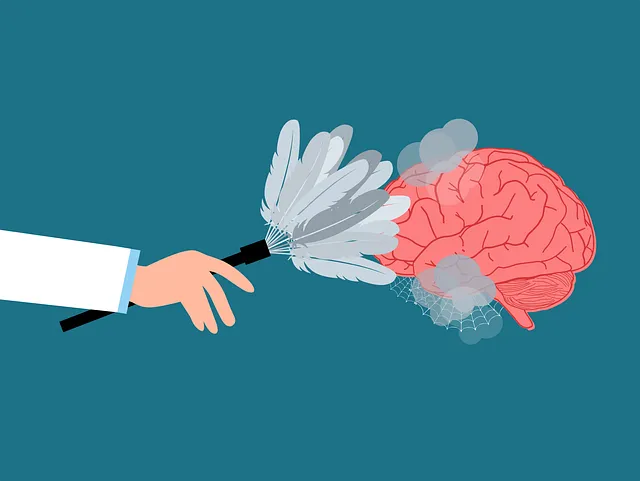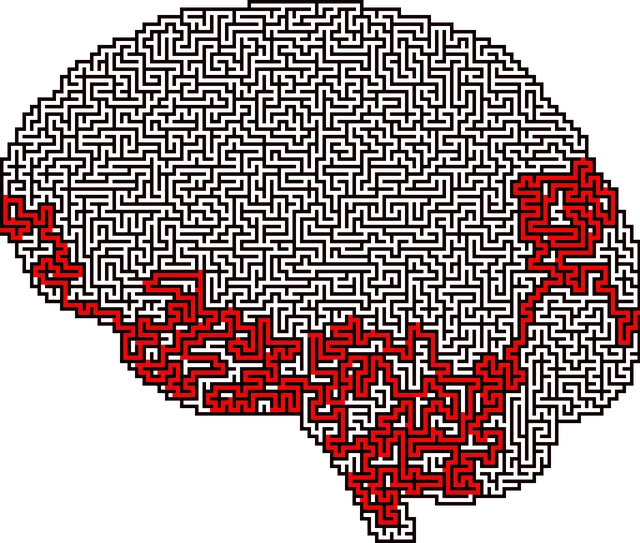The diagnostic process for mental health conditions is intricate due to symptoms overlap and comorbidities, making accuracy challenging. Kaiser's inpatient mental health services in Broomfield address these issues with advanced assessment tools, diverse therapeutic approaches, and tailored treatment plans. By utilizing controlled environments, emotional regulation testing, and evidence-based practices, they enhance diagnosis precision, leading to more effective treatments for anxiety relief and self-esteem improvement. These initiatives ensure patients receive personalized, effective care at Kaiser's Broomfield facility.
Mental illness diagnosis accuracy is a critical aspect of patient care, yet it remains challenging. This article delves into the current hurdles healthcare systems face, focusing on the impact of these challenges on treatment outcomes. We explore the success stories and limitations of Kaiser’s inpatient mental health services in Broomfield, known for its comprehensive approach. Furthermore, we present evidence-based strategies and best practices to enhance diagnosis accuracy, highlighting the potential role of technology, training, and multidisciplinary collaboration in improving patient outcomes, with a special focus on Kaiser’s model.
- Current Challenges in Mental Health Diagnosis Accuracy
- – Discussing the complexities and barriers in diagnosing mental illnesses
- – Highlighting the impact on patient care and treatment outcomes
Current Challenges in Mental Health Diagnosis Accuracy

The current landscape of mental health diagnosis presents several challenges that impact accuracy and patient outcomes. One significant hurdle is the complexity and broad spectrum of mental illnesses, which often overlap in symptoms, making differentiation difficult. For instance, depression and anxiety disorders share numerous common indicators, requiring meticulous evaluation to establish precise diagnoses. Additionally, many individuals struggle with comorbid conditions, adding layers of complexity to the diagnostic process.
Institutions like Kaiser, with inpatient mental health services in Broomfield, play a pivotal role in addressing these challenges. They employ advanced assessment tools and integrate diverse therapeutic approaches, including Social Skills Training and Self-Awareness Exercises, into their Mental Health Policy Analysis and Advocacy programs. These strategies aim to enhance diagnosis accuracy by considering the unique presentations of each patient, fostering more personalized treatment plans, and ultimately improving long-term patient outcomes.
– Discussing the complexities and barriers in diagnosing mental illnesses

Diagnosing mental illnesses is a complex process, often fraught with challenges that impact accuracy and patient care. One significant barrier lies in the vast spectrum of symptoms and their varying presentations across individuals. Mental health professionals must navigate this complexity, considering cultural influences, comorbid conditions, and the unique experiences of each patient. For instance, what may be indicative of anxiety in one person could differ from another, making diagnosis a nuanced art rather than a straightforward science.
Furthermore, the environment in which assessment takes place matters, especially when examining acute cases. Facilities like Kaiser’s inpatient mental health unit in Broomfield play a crucial role in providing controlled environments for detailed evaluation. These settings allow for comprehensive assessments, including emotional regulation testing and therapy sessions, helping to disentangle symptoms associated with various disorders. By addressing these barriers and leveraging resources like specialized units, the accuracy of mental illness diagnoses can be substantially improved, ultimately leading to more effective treatment strategies focusing on anxiety relief and self-esteem improvement.
– Highlighting the impact on patient care and treatment outcomes

Mental illness diagnosis accuracy is paramount for patient care and treatment outcomes. Inaccurate diagnoses can lead to inappropriate or delayed treatments, impacting a patient’s quality of life and recovery journey. At facilities like the inpatient mental health department at Kaiser in Broomfield, efforts are underway to enhance diagnostic precision through comprehensive Risk Management Planning for Mental Health Professionals. This involves regular training on the latest assessment techniques and an emphasis on evidence-based practices.
By prioritizing accurate diagnoses, healthcare providers can better tailor interventions to each patient’s unique needs. Incorporating Mindfulness Meditation and Inner Strength Development programs as part of treatment plans has also shown promise in improving diagnostic accuracy by promoting patient self-awareness and emotional regulation. These initiatives collectively contribute to ensuring that patients receive the most effective care possible.
Diagnosing mental illnesses accurately is paramount for effective patient care, as current challenges highlight. Efforts to improve accuracy, such as enhancing training and utilizing advanced assessment tools, are crucial. For instance, Kaiser’s inpatient mental health services in Broomfield offer specialized care, demonstrating a commitment to addressing these complexities. By continuing to innovate and prioritize mental health diagnosis accuracy, we can ensure better treatment outcomes and improved lives for those facing mental health conditions.






